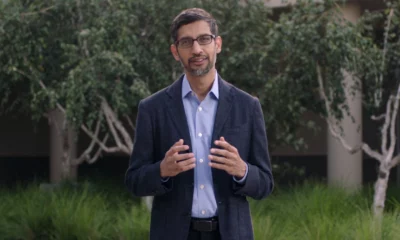Social Media
TIPS TO HELP YOU SEARCH GOOGLE BETTER

 Since the early days of the internet, there has not ceased to be the use of search engines to locate the myriads of information available online. The use of search engines is indispensable to locate the information you need. If you have used the Internet for up to 10 years and over, you would remember search engines like Lycos, AskJeeves, Altavista and so on. Even though these ones have faded out and more prominent search engines like Yahoo and Bing, which is powered by software giant Microsoft, have come to stay, none of them stands out or is as popular as Google.
Since the early days of the internet, there has not ceased to be the use of search engines to locate the myriads of information available online. The use of search engines is indispensable to locate the information you need. If you have used the Internet for up to 10 years and over, you would remember search engines like Lycos, AskJeeves, Altavista and so on. Even though these ones have faded out and more prominent search engines like Yahoo and Bing, which is powered by software giant Microsoft, have come to stay, none of them stands out or is as popular as Google.Now that dependence on Google for is that high, it only makes sense for one to know how to get Google to provide exactly the kind of information they want. How is this done?
What follows is a list of formats which you can use to get Google to give you just what you want. These few tricks from WhoIsHostingThis.com will help you become a Google power user.
Search exact:
If you are looking for an exact phrase, use quotation marks like this: “the evening of December 25”
Exclude a word:
Add a hyphen “-“ before a word to exclude a search term. This is useful if you are searching for a word with several meanings. For example, you could type: Terminator –movie, to get results for the word terminator apart from the movie.
Search within a site:
This is used to search for items but restricting the results to within a particular site. The keyword is “site:” For example, ebola site:tribune.com.ng.
Related websites:
Find websites similar to one you already know. Keyword is “related:” for example, related: bit.ly
Find news related to a particular location:
Use this on Google news to find stories coming from a particular location. Keyword to use is “location:” For example, disease outbreak location:Lagos
Search for a particular file type:
If you are looking for files of a particular file format use the keyword, “filetype:” followed immediately by the file type such as doc, pdf, xls. An example is, “2014 curriculum filetype:pdf”
Using asterisk sign:
The asterisk * sign is used as a wildcard and helps you find a missing word in a phrase. For example, “the effects of * petrol”
Using OR
If you want to find pages with one of several words, use a capitalized OR. Without OR, results will show pages that include all the terms. An example is, “World Cup 2014 OR 2010”
More kkeywords that exist in Google search are: WEATHER, example, weather:Abuja; TIME, example, time:London; APPL for stock quotes; and DEFINE for definitions, for example, define jingoisms.
Aside from the examples above, Google does not usually recognize punctuation or grammar. However, punctuation and symbols that do work in Google search include: @, #, $, +, for searching social tags, hash tags, prices and blood type respectively.
Google has other services to give you results tailored to your needs such as Google Images for searching for pictures related to a particular word or phrase you enter; you can also upload an image to find out more about it.
Google Goggles lets you search the web using your mobile phone’s camera instead of words. Simply take a picture of the item you want to search for and look at the results.
Google Trends lets you explore trending search topics on Google and see what other people are searching for.
Google Books lets you search and preview books from millions of publishers around the world.
Google Scholar lets you search for theses, abstracts and articles.
source:http://tribune.com.ng/digital-savvy/item/13550-tips-to-help-you-search-google-better







